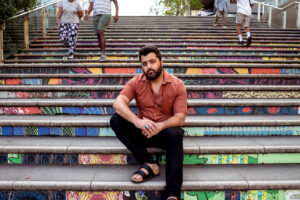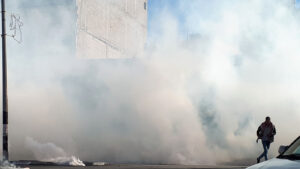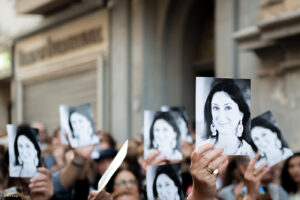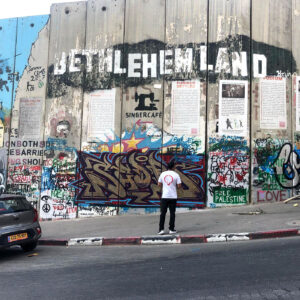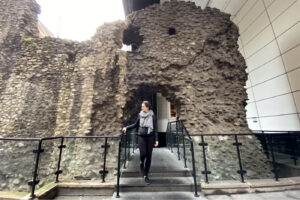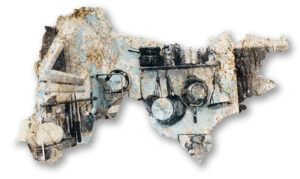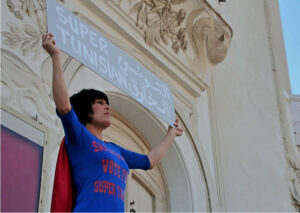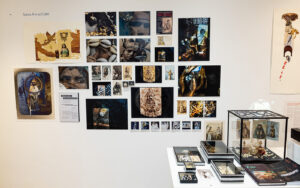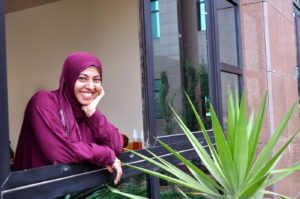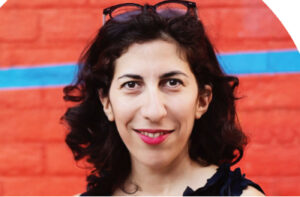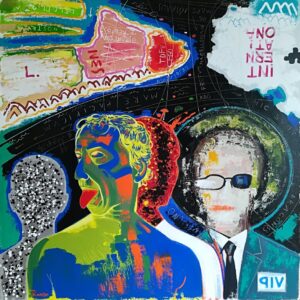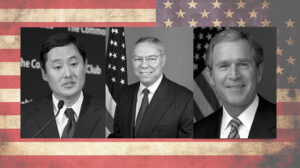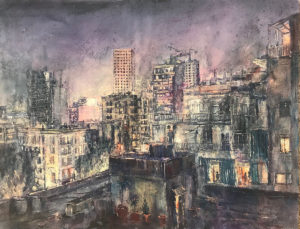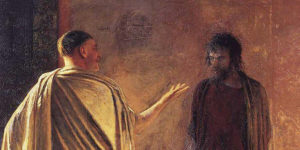Select Other Languages French.
From Gaza to New York, grieving for Palestine has long been treated as defiance. This essay traces how that defiance is policed in classrooms, rehearsed in newsrooms, and across borders, and what it costs to keep witnessing.
I. The first break
In September 2000, the killing of twelve-year-old Muhammad al-Durrah in Gaza, filmed by Palestinian cameraman Talal Abu Rahma and broadcast by France 2, briefly pierced international headlines. In under a minute, it broke through the indifference that buries Palestinian lives under the label of “regional conflict.”
The footage fixed the grammar of power: a father pleading for mercy; gunfire in reply; a child jolting; blood spreading across concrete. The father lived. The child did not.
That September, I joined a small vigil on the steps beneath the Alma Mater statue at Columbia. A dozen of us gathered, candlelight streaking in the wind, the boy’s photograph amongst us.
Then a student approached, and for a moment I thought she might stop to join. Instead, she spat at us and said, “We should have killed more of you,” before continuing up the steps. My eyes fixed on the wet stain she left on the concrete.
The certainty of her words struck harder than their cruelty. She didn’t hesitate to say them because she didn’t have to. She carried Israeli fire in her mouth, certain it would be allowed to land even here, in the heart of an Ivy League campus. In that instant, I understood that Israel’s violence did not end at a border. It traveled as a blanket permission to say or do nearly anything in service of the state.
Edward Said was still teaching at Columbia then. His writings on Palestine, of a people forced to live inside the stories others told about them, helped me name the dissonance I was feeling. My grief for a Palestinian child had been treated as an offense.
When word of the incident reached him, he reported it. Later I was told that this student had returned to Israel, where she had recently completed military service.
Every generation is given an image that jolts them into consciousness for a moment. For my generation, it was Muhammad al-Durrah, cowering beside his father in 2000. For people today it is five-year-old Hind Rajab in Gaza, her voice pleading from a phone to people powerless to save her. The pictures change, but the grammar is the same: a child, a plea, a reply consisting of the world’s inability or unwillingness to respond.
It wasn’t an isolated incident. After that day, I took measure of every room before speaking about Palestine. Columbia taught me what my grief could cost me, and that simply being visible as an Arab in America was dangerous.
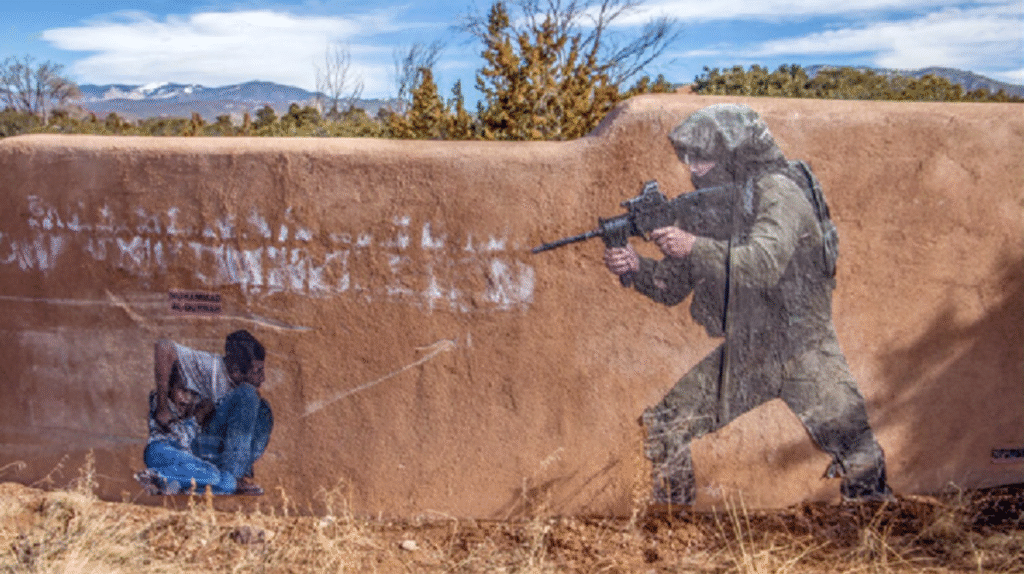
II. Early knowing
Before I knew it as geography, Palestine lived in songs that ached for return, but I’d never perceived any of it with my own eyes.
The summer I was twelve, we went traveling with my uncle, whose love for Egypt ran deep. He wanted us to see the country not as tourists but as its inheritors. He turned every journey into a story, and that summer, our trip began at a tree in northern Sinai that was said to have sheltered the Holy Family on their flight into Egypt. From Arish we drove east to the border with Gaza.
The closer we came, the quieter it got, as the buildings thinned out around us. We stopped at a long fence.
Beyond it, there were pocked walls and an Israeli flag fluttering over ruin.
That same year my eighth-grade final project had been on the Holocaust. One atrocity had a place in the curriculum. The other I had to discover on my own, in the silence my uncle let settle. This was the shape of the longing in all those songs, a place already taken.
In Egypt, Palestine filled the headlines almost daily. In America, almost never. Living in between those two countries and perceiving those contradictions would eventually teach me the deliberateness of this absence and how my sympathies were being trained.
School taught me America saved the world. I had to learn on my own what that salvation cost: how that greatness was built, and on whose backs. The violence inherent in America was repackaged, trivialized, or erased altogether. Slavery was rewritten as progress and became a month of achievement. Native genocide became mascots, team names, and a holiday that turned conquest into tradition.
Gaza fits this pattern. Bound to Israel, its suffering was tucked away to protect the myth of American freedom. In a country whose dealings with the Arab world hinge on aid, oil, and strategy, the lesson is clear: some histories are curated, others are contained.
I kept two records of the world: what I saw in Egypt and what the U.S. tried to keep me from seeing.
III. The day home became a border
After 9/11, the double standards left the classroom and entered daily life. Overnight, Arabs became suspects, cast as threats. It was the same playbook still in effect today: treat an entire people as hostile, erase their individuality, and make suspicion the starting point.
As Christian Egyptians, some of us leaned on difference to escape being cast as Muslim Arabs. A few rejected the Arab label altogether, clinging to an Egyptian-only identity shaped by persecution. I chose differently, keeping faith in a shared Arab belonging.
My shields were small things: a biblical first name, a last name mistaken for Irish, even a face that sometimes read as Jewish. None of it mattered. The War on Terror made our fragility as Arabs plain, drilled into the public with slogans like “If you see something, say something.”
It pulled us into visibility and marked us by force, with no way to look away. The war claimed to target an idea, but its vagueness was the strategy. By declaring war on an abstraction, the United States gave itself license for a campaign without end, one it could turn against Arabs first, or anyone made to embody it.
The nations that branded us terrorists were themselves among the most violent in history: America with its invasions and occupations, Europe with its centuries of conquest and world wars. Their histories overflowed with blood, but we were being cast as the danger.
A few weeks after the twin towers fell, I went with my father to a corner deli to order sandwiches for a family picnic. After he placed the order, the clerk glanced at my father and said flatly, “We don’t serve terrorists.”
We froze.
My father turned without a word. I followed him, keeping silent. While we sat in the car, he stared at the brick wall of the lot with his hands resting on his lap.
Just like with the incident at Columbia, it was not the insult that chilled me. It was the permission behind it.
I knew my father wouldn’t sit idle. He only needed a moment to collect himself before going back inside to do what anyone should in that moment: stand up for himself.
Through the windshield I watched as a manager intervened and my father made his complaint. Later we learned the clerk had been dismissed.
In the months after, my parents leaned into their Americanness and their Christianity. They planted an American flag beside the Virgin Mary in our front yard hoping these symbols would safeguard them from suspicion.
My father had always told us not to speak Arabic in public, wary of us being seen as immigrants. But as we all quickly learned, it wasn’t something we could control. They saw us as they wished to see us.
And so I went in a different direction entirely. I found myself saying “Arab” more often, when asked about my identity. I used it not as a slogan, but as a shield.
IV. A home for the story
I became a journalist to give the stories I carried somewhere to go. Journalism gave me a language I could trust and, for a while, it freed me from chasing belonging. It connected me to a broader vocabulary, one I believed was truth itself.
At twenty-three, I joined Al Jazeera English, the network’s youngest journalist. It felt like home; a newsroom of people who, like me, had lived the stories they covered. The reporters around me came from countries that had lived through coups, occupations, and uprisings. Memory was our authority, proximity was our proof. And our audience was other people like us.
Al Jazeera wasn’t free of politics. Funded by Qatar, it often felt like it doubled as the country’s soft-power project. But even within those parameters, it gave space to voices other outlets refused to platform. From its nonstop coverage of the 2003 U.S. invasion of Iraq to its reporting across the Arab world, it disrupted the airwaves in ways no other channel dared. It broke the Western monopoly on war reportage and changed how wars were told.
Nowhere was this more evident than in its coverage of Palestine. Where most networks bent to Israel, Al Jazeera did not. Criticism of its lenience on Qatar had merit, but Qatar was rarely the story. Palestine was. We reported with access and clarity no one else could match, and did something unprecedented for an Arab network: we put Israeli officials on air, bringing them into Arab living rooms. The risks were enormous, and the approach earned the network enemies on all sides.
Al Jazeera changed the air across the region and the diaspora. Its ticker never stopped, its screens filled with voices others tried to erase. For the first time, the Arab world was watching itself, speaking with a voice that was global and impossible to ignore.
From its colonialist beginnings, the West had treated the Arab world like a monolith. The flipside was to pro-actively claim a more collective identity, and Al Jazeera became both its extension and its exemplar.
V. Learning the language of power
When the Arab uprisings began, first in Tunisia, then spreading to Egypt, I was back in Cairo. I covered the entirety of the Egyptian revolution, including both the leadup and aftermath. From August 2010 to December 2012, the Cairo office became a revolving door, with correspondents flown in from odd corners of the world, dropped into Egypt to get a taste of the Arab Spring before being sent on to Syria or Libya.
I was responsible for getting coverage from over half the country. I filed from factories, farms, hospitals, morgues; I walked in hundreds of marches, recording, documenting. The pace was relentless, and the cost was physical. Tendinitis, shingles, and panic attacks all followed. But even at its harshest, the work was still a privilege. I was part of a bigger story.
When I began filing for Western news desks, the shift was immediate. The story didn’t need to be true; it had to be acceptable. Each edit taught me what kind of suffering was legible, what kind of death was allowed to matter. The language of power had its own syntax and I was learning to write it. Objectivity was a disguise, a costume that power wore to be impartial. Where events appeared, how they were worded, which standards applied; everything defaulted to Western power. The result was predictable: some grief was made legible, other grief erased. Sudan’s war dragged on month after month. When its darkest days overlapped with Russia’s invasion of Ukraine, it vanished from the headlines. Black death in Africa was no match with European war.
Then came October 7. After that, it became explicitly clear that our job as journalists was not to report events but to reshape them until they fit the dominant frame.
Style notes codified the pattern: hedge Palestinian death, accept Israeli numbers, label Gaza institutions “Hamas-run,” replace “boy” with “teen,” replace “raid” with “clash,” and always mention rockets falling on Israel, even in stories about flattened homes in Gaza. Israeli attacks were framed as retaliation for October 7, while Hamas was cast as an aggressor waging war on an entire nation, as if the symmetry were equal. A story of forty Palestinians killed could not run without at least one line about Israeli fear. Even when Palestinian stories made it through, they were often buried deep in the copy, while Israeli voices led. Palestinians died in scores while editors debated vocabulary. They hesitated over “genocide” while their own journalists were hunted down, their deaths reported in the same column space where their bylines and copy once appeared.
Features were approved on unproven allegations against Palestinians, while documented reports of Palestinians tortured in custody rarely left the region file, surfacing later as a footnote. No one ordered this explicitly. Habits and edits taught it until you anticipated the cuts and made them yourself. You were trained to accept the voice of power until you became its obedient echo. The machinery doesn’t just kill; it polices meaning.
VI. After the desk
I’ve been away from the desk for almost a year now; the longest in my life. Time moves differently now, spilling everywhere, uncontained by the words I once trusted. I still jolt when major headlines arrive, my body wired to turn them into copy, but the cursor only blinks back. I am a witness among millions. Like the rest of us, I live in double exposures: cooking dinner while watching bodies pulled from rubble, feeding the cat while Gaza burns, sending birthday wishes as bombs fall.
On social media, grief collapses into banality: a child running on a beach; a child wrapped in a shroud; a celebratory toast; an airstrike. The platforms were never built to hold this much grief, and the overflow has its own violence. The trauma we face is not only in the images we see but in the whiplash between them. But I am no longer in the business of shaping the language of events. Like everyone else, I sit inside their repetition. As though listening to an endless chorus with no song.
From a distance, it’s clear the center of journalism has shifted. Networks still shape the frame, but truth now moves through people, independent journalists, not beholden to any single institution. It’s something I could only see once I stepped away.
Twice a week, I teach media writing. I don’t stand before students because I have answers, but to keep their questions alive. It feels absurd sometimes, to teach journalism after seeing how language bends to power, yet I do, because I still believe it matters.
Journalism isn’t about saving anyone. It’s about refusing to look away. At its best, it’s an act of trust, that if we set down what we see without pandering, someone else may have to face it too.
VII. A nation of witnesses
My generation of Arabs was born into a rotation of griefs: the Lebanon war, the First Intifada, the Gulf War, Iraq, Syria, Libya, Sudan, and of course, Gaza, again and again. War has seeped into the marrow of our years.
But that grief has somehow led me to my true identity. Speaking up about Palestine made my Arab identity public. I never set out to be an activist. I was simply being honest in a world that treated honesty as defiance. That’s the part no one tells you. In systems built on silence, even telling the truth becomes a form of resistance. Even if most days it felt less like a choice and more like self-defense, in my attempt to find a place to grieve, to make my grief legible and valid, I found myself in a new nation.
Gaza has torn the world open. It asks us daily: who is allowed to be human, and who is not.
Around this question, we build a new way of being in the world, and a new way of being with one another. We cannot undo the starvation of children or rebuild memories that have been turned to dust, but together we can find ways to name the forces that made this destructive order possible: an alliance that arms Israel to the teeth, rewrites truth, and punishes anyone who refuses its version.
I didn’t inherit Arab as a stable noun. I learned it as a verb, in the pause before saying “we” in American rooms, and in the aftertaste once it left my mouth. Activism taught me the power of that “we,” the one Israeli narratives tried to dissolve and American institutions made conditional. The more I witnessed, the clearer the pronoun became. “We” is our story. More than that, it is the story that power sought to fragment and then bury.
Gaza made a nation of us all. A nation of grief, yes, but also of people, Arab and otherwise, united in the insistence on human worth and the quiet dignity that only the act of witness can impart.



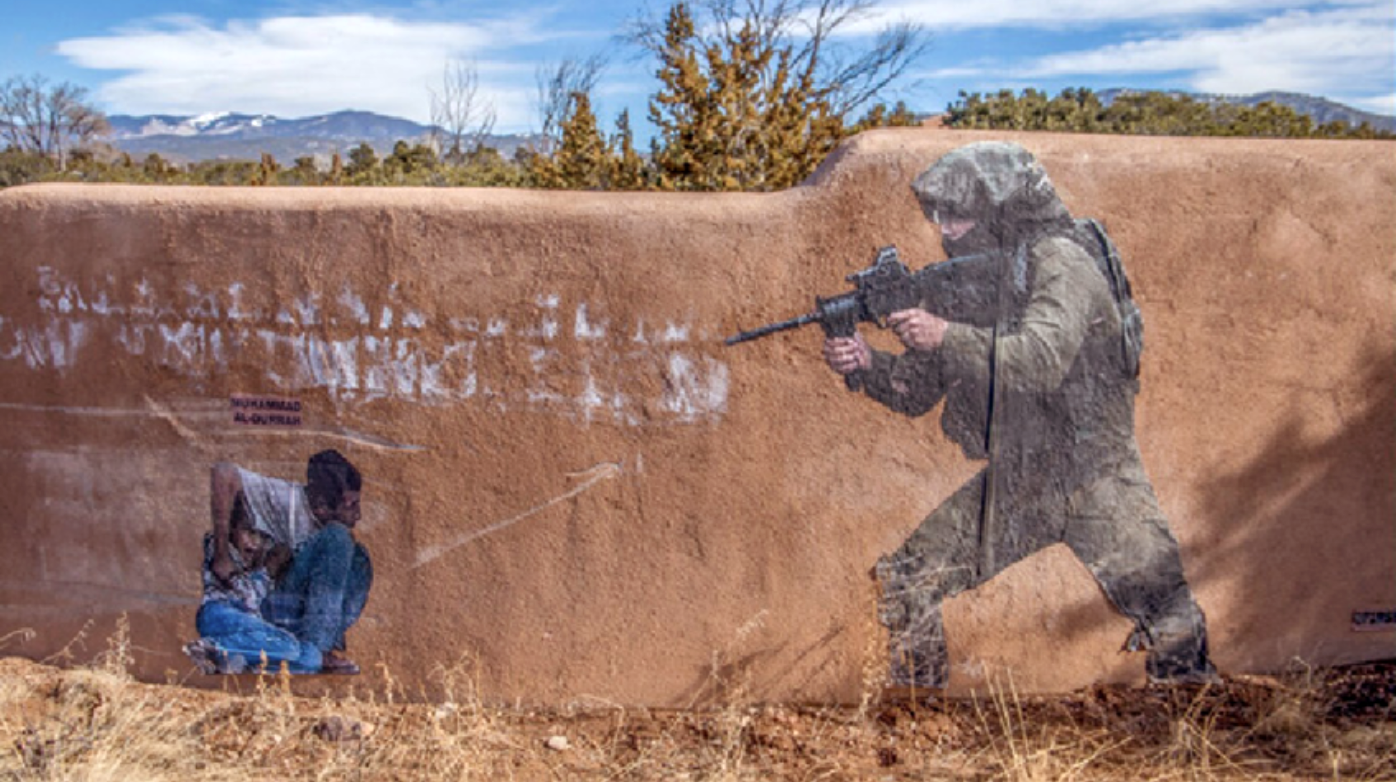





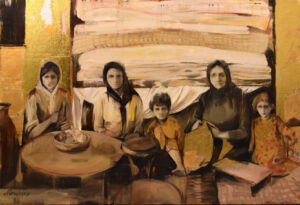


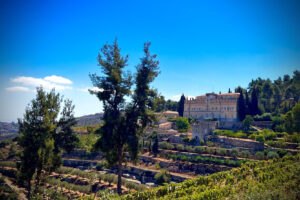

















































































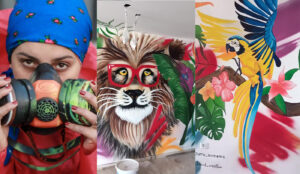

















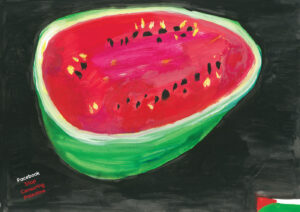
























![Fady Joudah’s <em>[…]</em> Dares Us to Listen to Palestinian Words—and Silences](https://themarkaz.org/wp-content/uploads/2024/03/SAMAH-SHIHADI-DAIR-AL-QASSI-charcoal-on-paper-100x60-cm-2023-courtesy-Tabari-Artspace-300x180.jpg)

